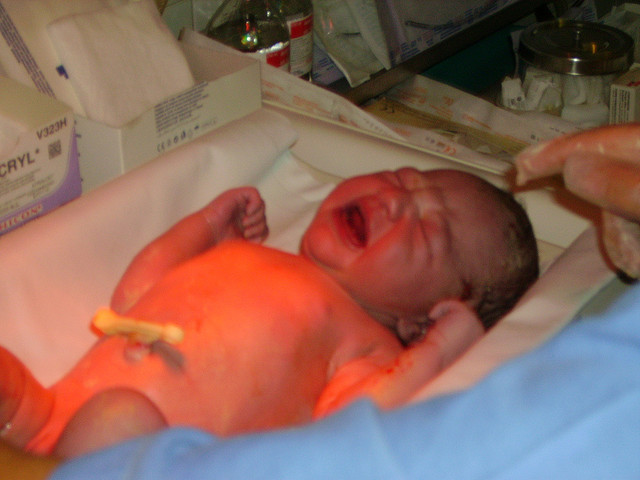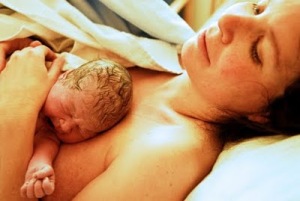After recently reading a post about “who makes the decisions when you are in labor” my own labor and deliveries came to mind. Alongside were the memories of the numerous labor and deliveries that I attended as a nurse.
When I began my career, my first position was as an L & D nurse at a university teaching hospital in the Bronx. Starting out was frightening and never having had a child I had absolutely no experience of my own.
It was the early 70s and at this particular hospital, many of the patients did not want to be awake for the delivery of their baby.
Today, it is difficult to imagine such a time when moms did not want to control everything about pregnancy and delivery even before they actually conceive.
The young mom of the 70’s would actually ask to be ” knocked out ” for her labor and delivery. Usually she would add “just like my mother was when she had me”.
So back in the day, moms, who so wished, were given “twilight sleep” which was a mixture of several medications, one of which caused amnesia. So although a laboring woman could follow commands, move and talk, she had no recollection of what she was saying or doing or what was happening to her while in labor.
Husbands, significant others and family members were not allowed to be with a laboring woman who was medicated with this “cocktail”.
It was a privacy issue….since mom was unable to filter what she was saying. The medication was a type of truth serum of sorts. Sometimes during the stress of labor, a mom would call for someone other than her significant other which could indeed be problematic.
When it came time for delivery…mom would be taken to the delivery room. More often than not, general anesthesia was administered and a forcep delivery was done. Once the anesthesia was given the baby had to be delivered promptly which necessitated the use of forceps.
Natural childbirth, lamaze, and epidurals were the exception rather than the rule at this labor and delivery unit and in many units around the country. This was a standard of practice of the time.
After about a year at this particular hospital in the Bronx, I decided to move on to another university hospital in Manhattan.
It was a not only a change of hospital but I found myself in an entirely different world when it came to the practice of obstetrics.
Most women wanted to be awake for the birth of their baby, many had taken childbirth classes and epidurals were used frequently. There ware still forcep deliveries but there was no general anesthesia used for vaginal deliveries unless there was a complication.
In the 70s, doctors made most of the decisions and were not questioned too much, save for the few women who attended childbirth class with Elizabeth Bing, the founder of Lamaze here in the States.
Elizabeth Bing was adamant about teaching her mothers, who was the “boss” in labor and delivery. She encouraged moms to advocate for the type of delivery that they wanted, she gave them the tools to help question their doctors regarding any decisions that were being made during labor. It was really the “birth plan” in its infancy. Elizabeth Bing was a physical therapist not a nurse and she was opinionated with very strong beliefs in “natural childbirth”. I had much respect for her and took her LaMaze teacher certificate course so I could understand and support my patients in their effort to have less intervention during their labor and delivery.
The role of the obstetrician is, in my opinion, a very important one especially if intervention is needed. I know the statistics in the United States are not overwhelmingly better than other countries but I also know what I have personally experienced in my own deliveries and while taking care of other laboring moms. These experiences definitely skew my view in this area.
My one child had only an initial Apgar of 1 for a faint heartbeat at birth due to complications of a C-section for a transverse lie (sideways position of the fetus). Upon my arrival in L & D, I was already 8 centimeters dilated, which meant, get the baby delivered before the water broke and the cord prolapsed causing severe lack of oxygen to the baby. It was a scary moment for me and my husband…both of us medical professionals. My doctor moved swiftly while I cried not wanting a C-section but knowing that I needed one. I felt confident in their haste and let them do their work…I was not awake…although every attempt was made to allow me to remain so. The discomfort was just too much…so asleep I went. I did not see my little girl for over 24 hours due to her own medical needs.
As for who should make the calls during childbirth…that is a very complex question with many variables. As best as I can figure, it takes a “Village” to raise a child but it also takes a “Village” sometimes to deliver a healthy baby to a healthy mom. I wish that all deliveries and pregnancies went smoothly and that all doctors could be “kind” at all times with great bedside manners. Unfortunately, we are all human and at a time of “flight or fight” you want someone who is able to “fight” for you and your baby based on good sound medical decisions which sometimes have to be made quickly without much hand holding.
Believe me when I say no one wants a less than perfect child and no one wants to lose a mother or a newborn.
So when you write your birth plan do it with your doctor or your midwife and be comfortable with them making some important decisions when and if it is necessary to do so.
Who Makes the Calls in Childbirth? You or the Doctor? | Being Pregnant.


